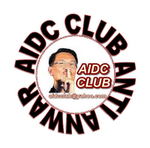
By Sarmad Qazi
Indyk, Rumaihi and Grand speaking to the media yesterday Renewed emphasis on solving problems by embarking on the path of sincere dialogue and identifying the real challenges and ways to tackle them was laid by speakers of a session at the sixth US-Islamic World Forum that began in Doha yesterday.
A highly-distinguished panel comprising former US secretary of state Madeleine Albright, Malaysian opposition leader Anwar Ibrahim, US CentCom commander David Petraeus and Iraqi Deputy Prime Minister Barham Salih took part in the session ‘Common challenges: Addressing together emerging global issues’ – the theme of this year’s dialogue efforts.
Credited with introducing into the US foreign policy the idea that if the US were going to be a superpower, it must be a responsible state, Albright began by saying that the path of dialogue was the right one.
The national and religious identities, according to her were important to each individual, “but such identity must be indeed compatible with their greater roles”.
And while “in the Middle East the ideologues have tried for decades to instigate violence and hatred by insisting that they were the only virtuous people” they had failed.
“The right response to wrong is the pursuit of justice. And it is this difference between the people in Iraq, Afghanistan, Pakistan who strive for that,” Albright said while admitting the situation remains “fragile” in Iraq and the war “drags on” in Afghanistan.
Malaysian Parliamentarian Ibrahim, who is perhaps known best for his stance against corruption, had a more pragmatic approach when he raised the question of whether the US could or would find a credible partner in the Muslim World, which according to him was “suffering from chronic poverty and sham regimes”.
“You have judiciaries under siege, oppressive governments and no opposition, tightly controlled media and lack of civil institutions,” Ibrahim said while adding it was the Muslim governments that needed to offer opportunities to the aspirations of the people rather than “put all their hopes on the US.”
“We should, therefore, start within ourselves. And if there are to be fruitful negotiations, they must proceed on a premises that no religion has a monopoly on universal human values,” he added.
The man who first identified the structure of counter-insurgency in Iraq, and to a relative degree held it by the horns, General Petraeus spoke about an emerging architecture of security he referred to as ‘networks’.
“The relationship that makes up this security network is based on regional interests (anti-piracy, anti-narcotics etc),” the senior military official said.
While at it, he identified a multi-layered, yet interconnected security architecture that countries can or already are forming together beginning with: regional and international training network, equipment and development of infrastructure, information sharing (intelligence, common operating systems), leader engagement and finally the actual operational network.
“I call it a network as it allows us to see the model at a regional security (or bloc-like) level,” he added.
“The volume and quality of co-operation in this region is impressive and continues to grow as well which can address the global trans-national threats,” he noted.
Iraq then became the focal point, with the country’s deputy prime minister, Barham Salih, a Kurd, emphasising on the “successful transition” that the country is making, however “painful and slow”.
“Iraq has vigorously confronted many of the issues this forum hopes to tackle. The country sits on the intersection of so many Islamic divides. The transition in Iraq has been difficult but one must recognise the remarkable achievements,” Salih said.
According to him, the fact that US intervention in Iraq has polarised the Muslim World and much of the US as well, it is now emerging as a democratic state thanks to a recent election that have been hailed as a success across the world.
sumber - gulf-times.com







Tiada ulasan:
Catat Ulasan